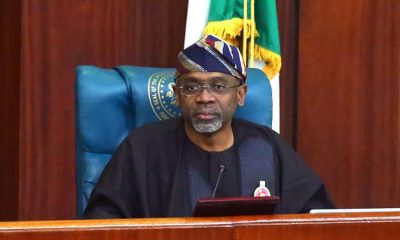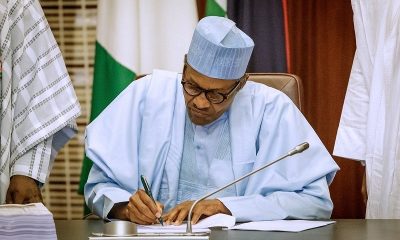News
Media groups tackle Presidency, N’Assembly over press council act amendment
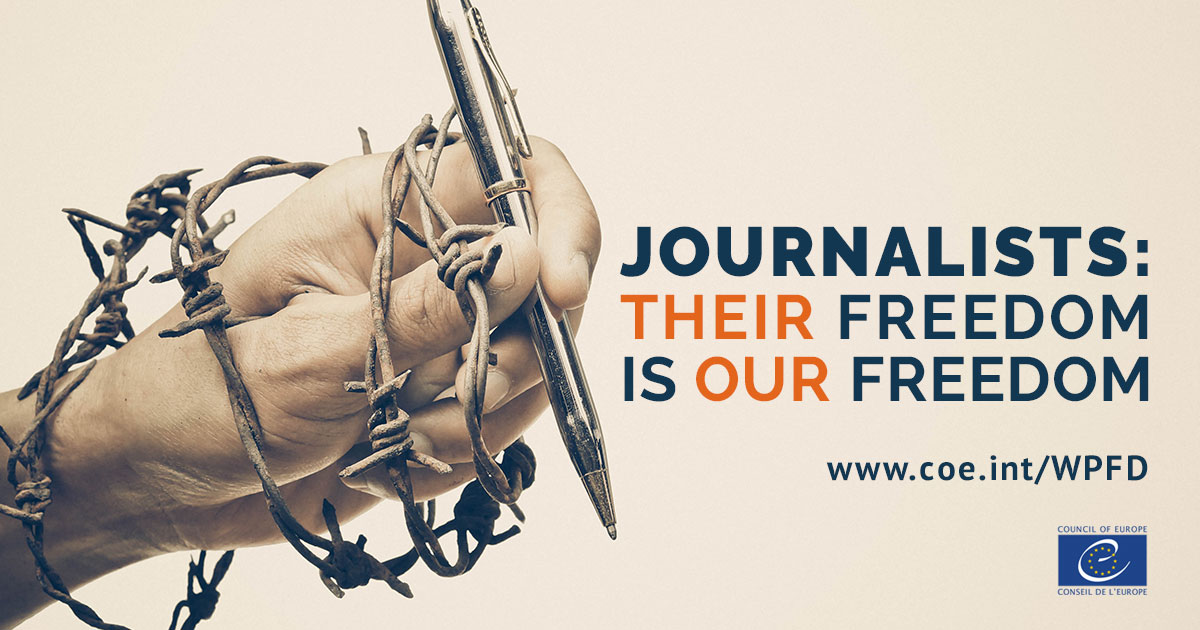
Media groups under the Nigerian Press Organisation (NPO) have kicked against the proposed amendment of the Nigerian Press Council Act over the inclusion of some clauses they described as unconstitutional.
The bill was considered at a public hearing organised by the House of Representatives Committee on Information, national orientation, ethics and values on Thursday.
Some media rights groups and other critical stakeholders in the media industry have also vowed to resist any move to infringe on press freedom through the proposed amendment of the NPC Act.
The NPO, an umbrella body of the Newspapers Proprietors Association of Nigeria (NPAN), Nigerian Guild of Editors (NGE) and Nigerian Union of Journalists (NUJ), argued that such clauses were a threat to press freedom.
A member of the NPO delegation, Azu Ishiekwene, said almost a half of the 39 clauses in the bill contained unconstitutional regulations that could stifle journalism practice.
He said the NPO had challenged the clauses up to the Supreme Court, and that continuing with the amendment would amount to preempting the court on the matter.
“It is a matter that has been pending in court since 1999 but the first decisive ruling in the matter came in 2010 when the high court ruled that 17 out of the 39 clauses in the bill were unconstitutional,” he said.
“The Federal Government appealed and got a ruling in December 2010. That ruling was again appealed by the NPO and it is pending at the Supreme Court.
“If you make a law now that binds the hands of the legislation or tilts the legislation one way or the order you are preempting the outcome of what the court is going to do.”
the International Press Centre (IPC) alongside Media Rights Agenda (MRA), Centre for Media Law and Advocacy (CMLA) and the Premium Times Centre For Investigation Journalism (PTCIJ) have also kicked against moves to infringe on press freedom and media independence in Nigeria.
Executive Director at the IPC, Lanre Arogundade, contributing, said, “The provision of 3 (d) constitutes a potential threat to press freedom and media survival as it does not provide for judicial intervention before highly punitive measures are handed down by the council and indeed could be used as a political weapon against the media.
“The section provides for penalties and fines against violation of the press code by print media houses and media practitioners, including revocation of licence.
“Section 17 (3) (a) & (b) provides that a journalist could be held liable for the offence committed by his or her organisation and can be made to pay a fine of N250,000.”
Arogundade added that another “punitive” clause is in section 21 (5) (a) whose amendment is such that “a journalist can be punished by the council even after he/she might have been found guilty by a court of law and without the council going back to the court to report continued infringement.
“Section 33 (3) and (4) does not give room for retraction or apology where a fake news is mistakenly published but recommends a blanket sanction of up to N10m or closure for a period of one year.”
A former Rep member and former Chairman of the Nigerian Union of Journalists, Sani Zorro, expressed concern over the NPC bill amendment, which he noted, was coming at a time when the government had taken some decision in regulating social media.
Zorro said the best way to go was for the NPC and critical stakeholders in the media industry to dialogue and chart way forward in the best interest of all.
He advocated that the NPC Board should be made up of professionals rather than being a “political board” which will not augur well for the interest of the media industry.
The Radio, Television and Theatre Arts Workers Union of Nigeria (RATTAWU), said Section 3 of the bill which wanted to empower the NPC to “approve penalties and fines against violation of the Press Codes by print media houses and media practitioners, including revocation of license,” should be expunged, arguing that print media houses were business ventures registered by the CAC and not NPC.
The union said any move to censor them would amount to a nullity.
National President of RATTAWU, Comrade Kabiru Garba, also pointed out that Section 9(1) of the bill which said, “the council shall establish a national press and ethical code of conduct for media houses and media practitioners, which shall come to effect and be disseminated after approval by the minister”, should be discarded.
He said the codes should rather come from the board of the council comprising all the stakeholders.
But Executive-secretary of the NPC, Francis Nwosu, commended the amendment of the bill and recommended that the council should also be empowered to regulate online media.
News
U.S. Congress Submits Report to Trump on Alleged Christian Persecution in Nigeria

U.S. Congress Submits Report to Trump on Alleged Christian Persecution in Nigeria
The United States House Committees on Appropriations and Foreign Affairs have formally submitted a comprehensive report to President Donald Trump detailing their findings and recommendations on the alleged persecution of Christians in Nigeria and ongoing security challenges in the country.
The report follows President Trump’s redesignation of Nigeria as a “Country of Particular Concern” (CPC) under U.S. religious freedom criteria and was the result of months of investigation led by Congressman Riley Moore and House Appropriations Committee Chairman Tom Cole. The investigation involved hearings, expert testimonies, and bipartisan fact-finding missions to Nigeria.
Congressman Moore confirmed the submission on his X handle (@RepRileyMoore), noting that the report draws on on-the-ground assessments, interviews with internally displaced persons, meetings with government officials led by National Security Adviser Nuhu Ribadu, and consultations with religious leaders.
During the Nigeria visit, congressional delegates visited IDP camps in Benue State, assessed the impact of terrorist attacks, and observed first-hand the security risks facing Christian communities. Moore emphasized that the findings provide a clear picture of the threats in Nigeria, including attacks by Boko Haram, ISWAP, and armed militias, which have led to killings, abductions, and widespread displacement.
“This report underscores the urgent need for Nigeria to address these pressing security challenges and protect vulnerable communities,” Moore said. He also urged the Nigerian government to strengthen ties with the United States to jointly combat violence and ensure the safety of civilians.
READ ALSO:
- 15 Killed as Peruvian Military Helicopter Crashes During Flood Relief Mission
- Nigeria Allegedly Paid Boko Haram to Free Abducted Schoolchildren, Teachers – AFP Report
- Ijebu Ruling House Appeals to Tinubu to Resolve Awujale Stool Deadlock
Key Recommendations in the Report
The report contains specific recommendations aimed at protecting civilians and promoting security, including:
- Establishing a bilateral U.S.–Nigeria security agreement to safeguard Christian communities and dismantle jihadist networks.
- Conditioning U.S. aid on measurable actions by the Nigerian government to prevent violence against civilians.
- Implementing sanctions and visa restrictions on individuals or groups responsible for religious persecution.
- Providing technical and strategic support to Nigerian security forces to counter attacks by Fulani militias and other armed groups.
- Encouraging reforms of restrictive laws, including Sharia and blasphemy statutes, that may contribute to discrimination.
- Collaborating with international partners such as France, Hungary, and the United Kingdom to coordinate security and humanitarian responses.
Moore described the report as a blueprint for action, reflecting firsthand observations and expert consultations. “We hope this report will guide policy to protect innocent civilians, strengthen bilateral relations, and promote long-term stability in Nigeria,” he said.
The report has drawn attention to the complex security landscape in Nigeria, where religious and ethnic tensions, terrorism, and armed banditry continue to threaten communities, particularly in the northern and central regions.
The Nigerian government has previously rejected allegations of genocide or targeted persecution of Christians, describing such claims as misinformation, while reaffirming its commitment to combating terrorism and ensuring the security of all citizens.
U.S. Congress Submits Report to Trump on Alleged Christian Persecution in Nigeria
News
Tinubu to Governors: State Police Must Begin Now
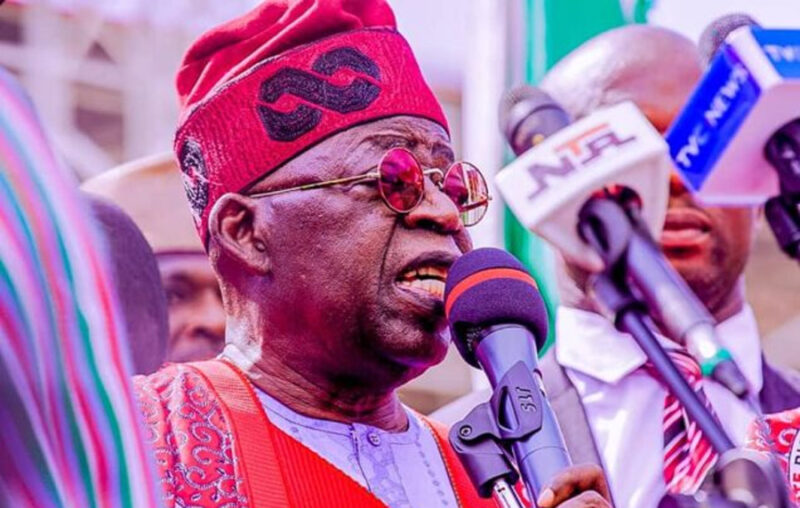
Tinubu to Governors: State Police Must Begin Now
President Bola Ahmed Tinubu has declared that the establishment of state police in Nigeria can no longer be delayed, stressing that urgent action is required to tackle rising insecurity, banditry, terrorism and kidnapping across the country.
The President spoke on Monday night after breaking the Ramadan fast (Iftar) with state governors at the Presidential Villa, where he said all levels of government must work together to reclaim ungoverned spaces being exploited by criminal groups.
“What I promised you will not be postponed. We will establish state police to combat insecurity. Start looking around you,” Tinubu told the governors, emphasising that Nigeria’s security challenges had reached a point where decentralised policing could no longer be ignored.
He reminded the governors that they had all, through deliberations at the National Economic Council (NEC), agreed on the need to create state police as a strategy to curb insecurity and protect communities. According to him, the consensus underscored the urgency of addressing widespread criminality that has disrupted livelihoods and instilled fear across many parts of the country.
Tinubu, however, acknowledged that critical issues such as funding, command structure, oversight, accountability and coordination with the Nigeria Police Force and other security agencies were still being worked out. He noted that these modalities must be carefully designed to ensure professionalism, prevent abuse and guarantee effective collaboration.
The President also urged governors to intensify grassroots development, saying neglect, unemployment and poverty at the local government level often fuel criminal activities. He appealed to state leaders to embrace inclusiveness and ensure that development opportunities reached the most vulnerable.
READ ALSO:
- Ten Killed in Coordinated Bandit Attacks in Plateau
- Police Dislodge Bandit Camps, Arrest Gunrunners in Kaduna
- BREAKING: Panic at MMIA as Fire Breaks Out at Old Terminal
- ADC Leadership Clash: Oyegun Bars Owie from Caucus Meeting in Edo
“Be all-encompassing. Let’s spread development opportunities to the grassroots and embrace the downtrodden, the young ones and all our supporters,” he said.
Describing the coincidence of the Muslim Ramadan fast and the Christian Lenten season as symbolic, Tinubu said the period reflected shared values of discipline, sacrifice and unity, urging Nigerians to continue to pray together and support one another.
Addressing internal political tensions, the President advised members of his party to exercise tolerance during ongoing congresses, stressing that unity and harmony were essential for national stability.
“Tolerate everybody. Let the young ones breathe. Build structures anchored on unity, harmony and sacrifice,” he said.
Acknowledging that criticisms and commendations would continue to trail his administration, Tinubu expressed optimism about Nigeria’s trajectory, saying the country was emerging from economic uncertainty.
“We are out of the dark tunnel of uncertainty. The economy is picking up. Let’s help those who are unemployed,” he added.
Responding on behalf of the governors, Imo State Governor Hope Uzodimma described the gathering as a symbol of religious harmony, unity and partnership between the federal and state governments. He praised the President for fostering political stability and strengthening collaboration with governors, pledging continued support for ongoing reforms.
The dinner was attended by Vice President Kashim Shettima, members of the Federal Executive Council, several state governors and senior government officials, including Chief of Staff to the President, Femi Gbajabiamila.
Tinubu to Governors: State Police Must Begin Now
News
U.S. Court Orders ICE to Release Nigerian Detained Since 2012

U.S. Court Orders ICE to Release Nigerian Detained Since 2012
A U.S. District Court in Minnesota has ordered U.S. Immigration and Customs Enforcement (ICE) to release Michael Opeoluwa Egbele, a Nigerian national who entered the United States illegally in 2003 and had been held under immigration detention since his arrest in 2012. The court ruled that his detention was unlawful due to prolonged enforcement delays and lack of proper legal notice.
Senior U.S. District Judge John M. Gerrard delivered the ruling on February 18, 2026, giving ICE until February 20 to free Egbele and file a status report confirming his release. The judge highlighted that ICE had no legal grounds to hold him, noting the unique circumstances of his long-standing supervision arrangement.
Egbele’s legal troubles began in 2012 after his arrest on a drug-related offence, which triggered deportation proceedings. At the time, he applied for asylum and requested that his removal be withheld, but his claim was denied, and he was issued a final deportation order in July 2012. However, ICE did not enforce the removal, and Egbele did not appeal.
Instead, he was released on supervision in December 2012, under which he was required to report regularly to ICE. This arrangement continued for more than a decade until January 2026, when ICE detained him during a routine check-in.
READ ALSO:
- Anambra Govt Shuts NASPA Market Over Sit‑At‑Home Defiance
- 2027: Bashir Ahmad Rules Out Kwankwaso as Peter Obi’s Running Mate
- EFCC Nabs 20, Seizes ₦17m Over Vote Buying in FCT Elections
Egbele argued in court that he was never notified of any revocation of his pre-existing order of supervision and was not given a legal explanation for his detention. ICE claimed the supervision was revoked partly because Egbele failed to obtain a travel document to Nigeria, as required under his supervision.
Following his arrest, Egbele was unable to contact his wife, a U.S. citizen, or his lawyer for several days. He was initially held at an ICE facility in Montana and later transferred to a detention center in New Mexico, with his location undisclosed for days.
The federal government argued that the Minnesota court lacked jurisdiction because Egbele was held outside the state, but the judge rejected this, stating that ICE could not unilaterally terminate a decades-long supervisory arrangement without due process. The court emphasized that Egbele’s right to proper notice and legal protections had been violated.
Judge Gerrard ordered that Egbele be released immediately under the conditions of his original supervision and directed ICE to file a compliance report by February 20, 2026.
Legal experts say the ruling highlights broader concerns about long-term immigration detention, due process rights, and the enforcement of removal orders in the U.S., particularly when individuals have established long-term ties or arrangements with immigration authorities.
U.S. Court Orders ICE to Release Nigerian Detained Since 2012
-

 Business2 days ago
Business2 days agoDangote Opens Refinery Investment to Nigerians With Public Share Sale Plans
-

 Education3 days ago
Education3 days agoUTME: JAMB Clarifies Position on Hijab During Biometric Capture
-

 Politics2 days ago
Politics2 days agoTinubu Hails Wike as APC Dominates 2026 FCT Area Council Elections
-

 Entertainment2 days ago
Entertainment2 days agoRegina Daniels Takes Delivery of ₦150m 2026 GAC Trumpchi M8 SUV
-

 Politics3 days ago
Politics3 days agoADC Defeats APC to Win First Polling Unit in FCT Area Council Election
-

 Politics2 days ago
Politics2 days agoFCT Council polls: APC Wins Four Chairmanship Seats as PDP Takes Gwagwalada
-
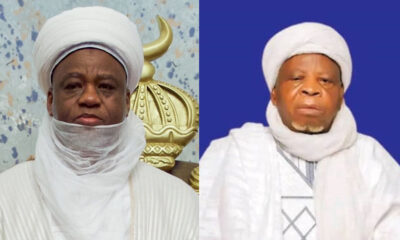
 News2 days ago
News2 days agoYoruba Muslim Group Dismisses Viral Ramadan Date Claim, Reaffirms Sultan of Sokoto’s Authority
-

 Politics2 days ago
Politics2 days agoOpposition Weakens as Another Governor Eyes APC Move



